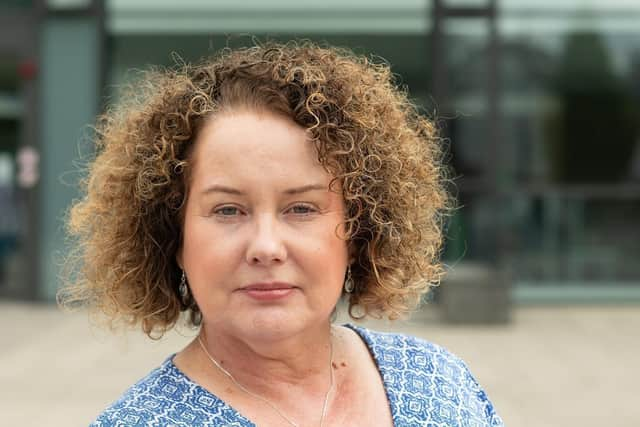Contact tracers are vital to beating Covid-19, says Wigan public health boss
and live on Freeview channel 276
Organisations across Greater Manchester have come together to set up the apparatus for preventing further spikes of Covid-19.
The track and trace system, which has now been up and running for two weeks, relays information about cases of the coronavirus to the Greater Manchester team and the contact tracers then find people who have been in contact with whoever is ill and urge them to self-isolate for 14 days.
Advertisement
Hide AdAdvertisement
Hide AdProf Ardern, who is co-ordinating the city-region operation and is also director of public health at Wigan Council, says it is vital to build up confidence in the new system as it is the best way to slow down transmission of the virus in the absence of treatments or a vaccine.


But with only 17 tracers at her disposal and 290 deployed across the whole country during the first peak of the virus, she feels that a significant increase in staff will be needed to make the system really effective.
Setting up contact tracing at a national level has been fraught with problems, with the Government only a couple of days ago coming under fire again after abandoning attempts to develop an app and reverting back to the idea of using existing technology from software giants Apple and Google.
Prof Ardern also criticised at Westminster, saying local government and public sector employees with the skills to do track and trace were not considered earlier in the pandemic response.
Advertisement
Hide AdAdvertisement
Hide AdShe said: “It is surprising to me that local government was not deployed earlier when you look at the skills of the workforce we’ve got on the books.
“I would estimate there are probably between 3,000 to 5,000 people who could have been deployed. There are environmental health officers, sexual health teams who do contact tracing, and so on.”
Given the national situation, Greater Manchester has looked elsewhere for advice on setting up its own tracing programme, taking notes on how Germany has handled this aspect of the coronavirus pandemic.
The region is one of 11 beacon sites but Prof Ardern admits that, with 17 contact tracers working the first two weeks of the scheme, there will need to be more people brought on board.
Advertisement
Hide AdAdvertisement
Hide AdHowever, despite the roles requiring a number of fairly specialist skills, she does not believe expanding the workforce doing track and trace will be a major problem.
She said: “We are clearly going to need more tracers. In the containment phase of Covid-19 290 people were deployed and that’s quite small.
“We want to get the hub triaging all the referrals going seven days a week.
“Much of contact tracing requires some fairly sensitive conversations with people.
Advertisement
Hide AdAdvertisement
Hide Ad“Currently we’re looking at the short-term workforce required. They are people like final year health and social care students, who already have a lot of skills and can be trained to do this relatively easily.
“Then we need to look at the medium-term workforce so we can react if we have big outbreaks in the future.”
On the work itself, she said: “If we’re going to get on top of small, intensely localised outbreaks track and trace is absolutely critical.
“You have to trace the people who have been in contact with someone with Covid-19. We haven’t got a treatment or a vaccine, so the most appropriate measure is to self-isolate for 14 days.
Advertisement
Hide AdAdvertisement
Hide Ad“I want to build up people’s confidence. We’re doing a lot of work on engagement at a Greater Manchester level.
“Covid-19 is going to be around with us for a couple of years, potentially, and it’s not the only pandemic that might hit us. We need to be building up our surge capacity so we have the right flexibility and number of staff to deal with it.”
In a reversal of how public systems often operate, the most specialised work in tracing is done at the local level, with the Greater Manchester team given access to Public Health England (PHE) data and the cases collected at national level cascaded down to the regions.
NHS statistics from the first fortnight of test and trace across the country show the scale of the operation being rolled out.
Advertisement
Hide AdAdvertisement
Hide AdIn the first week, beginning on May 28, 8,096 people nationwide were referred to the tracing system.
The teams then reached 46,949 people who were close contacts of those referred and asked them to self-isolate.
In the second week, 5,949 people were referred to the system and 40,690 close contacts reached and told they should self-isolate.
One health expert said on Friday that a large majority of this work had been done by local teams in partnership with Public Health England.